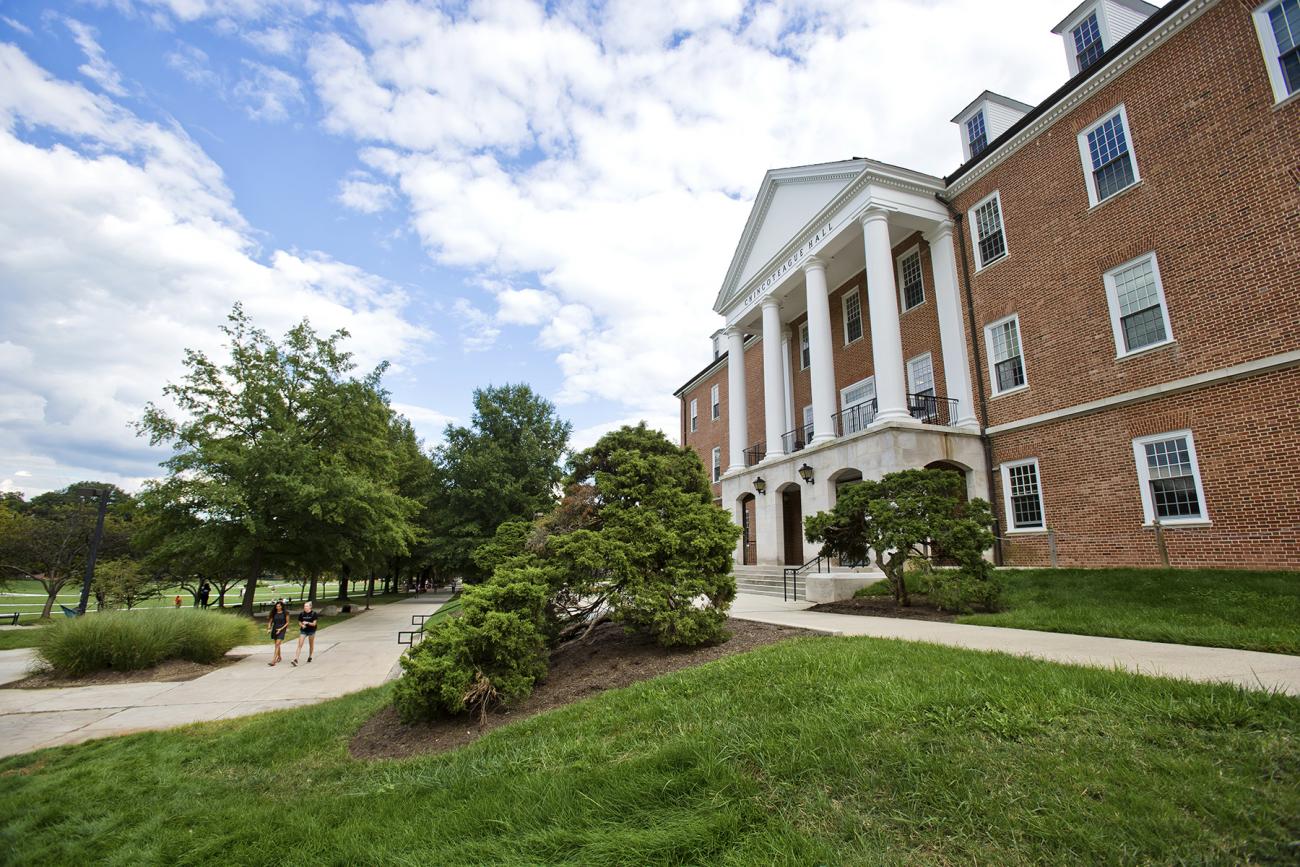The memorial award has now provided support to 31 outstanding graduates students in the Department of Government and Politics
Jean Elizabeth Spencer, a former professor of the Department of Government and Politics (GVPT), and the first female to graduate with a Ph.D. from the department, has left a lasting legacy in multiple respects.
Spencer, who passed away suddenly in 1992 at the age of 58, paved the way for women to lead in higher education in Maryland by most notably serving as the Deputy Chancellor of the University System of Maryland (USM)—then the second highest position within the system, and also the highest rank a woman had achieved in the state’s higher education system.
While serving as the staff director for the Maryland Constitutional Convention, known as the Con-Con of 1967-68, Spencer and her staff submitted a proposed state constitution, which was hailed as a model document of state government reform across the nation. Her report to the governor and state legislature provided recommended changes to the state’s Constitution and statutes, and served as a blueprint for governmental reform in Maryland over the next 25 years.
Spencer also founded USM’s still-active Women’s Forum, and reactivated the state’s Commission on the Statues of Women—now called the Maryland Commission for Women.
For the last 30 years, a namesake fund has also been providing support to outstanding GVPT doctoral candidates in her honor. Her three surviving sisters and fellow UMD alumnae, Janet Hartnett ’51, Judith Heisinger ’57, and Jacqueline Porthouse ’60 created the Jean Elizabeth Spencer Award in 1994.
“As a sister, she was smart, funny, and often the leader in our activities,” Janet remembered. “As a child, she wanted to be a pirate; someone who explored and searched for new places, new people, and new ideas and knowledge. This was a pattern for her life.”
Among Jean’s many trailblazing ways and wide ranging activities, what stands out to Janet is Jean receiving an honorable mention in the Westinghouse Science Talent Search—a research competition for high school students now known as the Regeneron Science Talent Search—Jean winning second prize in a Washington Post photo contest, and Jean researching and publishing a family history of the sisters’ maternal ancestors.
“The death of Jean at the peak of her career was a great loss to all who knew her and worked with her, but especially for her three sisters,” said Jacqueline. “Establishing the Jean Elizabeth Spencer award became the way to encourage women in government and politics and to support award recipients during that last stressful Ph.D. year. The awardees we have known and who have been recognized so highly have brought great joy to the three of us.”
Candace Turitto, GVPT lecturer and program director of the Applied Political Analytics (APAN) program, was one of the 31 individuals to receive the Jean Elizabeth Spencer award. Turitto said the award made a huge difference in what her doctoral dissertation—on how voters lose their ability to retain candidates’ information the more ads they share—turned out to be.
“I can't emphasize how much of a difference it made to my research to collect my own observations; that money made my project stronger and more conclusive, and I am so grateful for it,” Turitto said.
With the support of the Jean Elizabeth Spencer award, Turitto was able to pay for experimental respondents to watch a small TV show segment randomly peppered with political ads and other commercials. Through this experiment, she was able to demonstrate that those who saw more political ads had significantly less retention of their content than those who saw fewer.
“I would also like to think that in my own way, I've been able to stay true to the pursuit of the Spencer fund, to promote coordination with state and local governments in American politics,” she continued. “In the quantitative analysis course I teach to undergrads (GVPT 320) and in the master's program I direct, I emphasize to students that their skills can change the world, by changing how political actors and government organizations use data to make smarter decisions. I hope Jean would be proud.”



